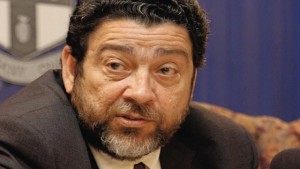 If the prevailing economic situation continues, the government of St. Vincent and the Grenadines may, in a month or two, be unable to pay salaries, Prime Minister Ralph Gonsalves said on Wednesday.
If the prevailing economic situation continues, the government of St. Vincent and the Grenadines may, in a month or two, be unable to pay salaries, Prime Minister Ralph Gonsalves said on Wednesday.
“And I say to persons, I say this with all honesty, the way things are going, they may well be in one or two months, sometime, if things continue with the straitened economic circumstances, that the government may not have the $30 million every month to pay civil servants and to pay the NIS contributions to civil servants, those who are pensionable to pay the NIS contributions for current, and to pay salaries and wages,” Gonsalves said on NBC Radio on Wednesday.
He was, again, appealing to public sector workers and the nation at large to get vaccinated against COVID-19.
“You know, I just don’t understand this thing that for somebody to take a test on you, a simple test … a rapid test [to determine] whether you have COVID-19 or not, that that is an unacceptable and unreasonable invasion of your individual rights and freedoms. It doesn’t make any sense in fact or in law,” the prime minister said.
So far, the government has administered 11,000 doses of the vaccine, amounting to about 11% of the population, even as it had hoped that about 50,000 people would have gotten the jab by this month, vaccine availability permitting.
Last week, the government announced a vaccinate or test policy, which requires that public sector workers provide proof of vaccination, or subject themselves to being tested up to once every two weeks.
But the government is facing opposition from public sector unions, which say that the policy offends the nation’s Constitution, an argument that the prime minister, a lawyer, rebutted on Wednesday.
Gonsalves said that his government has held things together economically “through all kinds of difficulties”.
“But I’m telling you, there is a real pressure on. We saw in the first month in January … revenue collections dropped by $15 million. We recouped in February. Things are even-steven between February this year and February last year. But we recouped because there were a couple of big alien landholding license transactions in Mustique, where we collect for each of those big transactions about 17%, roughly 17% of the value, and they were very big ones; rich people selling to rich people.
“And there are a couple more in the pipeline. In fact, when I leave here, I have to, I have to call the people to expedite because it means money. I’m talking about the public servants … to get these things quickly.”
Gonsalves said that the British government has announced that come June, it will implement a traffic light system for travel by British nationals.
He said that green indicates the countries to which British nationals could travel and red, the destinations to which they cannot travel.
Gonsalves said he did not know the details of the destination that would be categorised as amber.
“But, interestingly, one of the critical considerations is the extent of the vaccination in the country,” he said.
He noted that Virgin Atlantic is scheduled to begin flying to St. Vincent in June.
“If we are not on that green list there, the likelihood is that it will not come. This is a very serious matter about lives and livelihoods,” the prime minister said.
He further said that Trinity School of Medicine, a local medical school, has indicated that it wants its students to return to St. Vincent in May.
“… because we have to be opening up,” Gonsalves said, adding that, so far, his government has tried to cushion the effect of the harsh economic consequences of the coronavirus pandemic.
“I’m talking about the government, but it’s rough; rough on a lot of people. Civil servants and teachers and police, everybody gets their salary, you know. And we have sought to deal with this thing at one time by putting the Public Service on shift, and we closed schools.
“Of course teachers … — many, many of them, the majority of them have been doing good work with the students online. But some, of course, have been dilatory. You know, the performance has been uneven. And poor people’s children, everybody’s children need to get back [to the classroom],” he said.
Students in SVG are slated to return to the physical classroom next Monday, for the first time this year.
